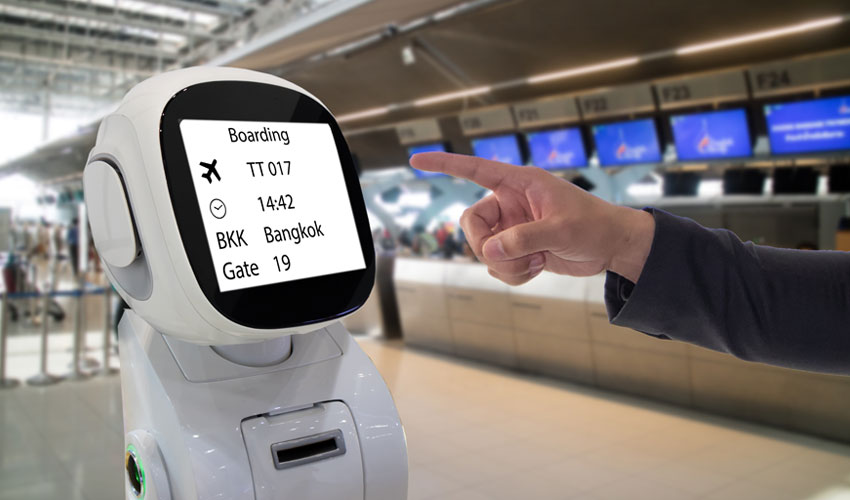Profit Growth, Passenger Satisfaction, and AI Innovation
The airline industry is taking off in 2024! Fueled by a strong global economy and pent-up demand for travel, passenger numbers are reaching record highs, with nearly 5 billion people expected to take to the skies. This translates to soaring profits for airlines, with a projected net income of $30.5 billion – a significant jump from 2023. But that’s not all – airlines are also making strides in customer satisfaction and embracing innovation with artificial intelligence to create a more sustainable travel experience. Read more in our aviation wrap-up June 2024:
Airline Profitability Outlook Improves for 2024
As passenger traffic continues to surge, the International Air Transport Association (IATA) has adjusted its airline profitability projections. Compared to its June and December 2023 forecasts, net profits are now estimated to increase by $3 billion. This would mark the second consecutive year of profitability for airlines.
However, despite the positive outlook, airlines are still struggling to make a return on invested capital that exceeds the cost of capital. This means that they are not generating enough profit to cover the cost of their investments. The risks likely to impact airline profitability in 2024 include high fuel prices, geopolitical instability, and supply chain disruptions.
While the outlook varies by region, Asia-Pacific airlines are expected to see the most significant increase in profits, while African airlines would see more modest gains. Overall, the airline industry is on the path to recovery, but there are still some challenges to overcome.
Passenger Satisfaction Soars to New Heights
In the complex and competitive world of aviation, customer satisfaction is crucial. When choosing an airline, passengers consider various factors. These range from safety and service quality to pricing, in-flight amenities, and environmental sustainability. While safety remains the top priority, travelers place special value on reaching their destinations on time.
On-time performance (OTP) is central to passenger satisfaction. Factors affecting OTP can be beyond an airline’s control, such as extreme weather conditions. However, airlines can improve operational efficiency to avoid delays caused for instance by gate availability.
With safety and on-time performance at the forefront, carriers are making concerted efforts to enhance the flying experience. And these efforts are paying off. Recent data from the American Customer Satisfaction Index (ACSI) shows that customer satisfaction with airlines is at an all-time high. Passengers are rating airlines highly on various aspects of the travel experience, including check-in, boarding, cabin cleanliness, and customer service.

AI Innovation Takes Off for Sustainability
Artificial Intelligence (AI) is being used to reduce the environmental impact of aviation. With international efforts to achieve net-zero emissions by 2050, this technology is seen as a key tool. Airports are large consumers of energy, and AI can help optimize scheduling and resource allocation to reduce emissions. For instance, it can predict maintenance issues for ground service equipment, reducing delays and idling aircraft.
Another area of focus is to streamline aircraft turnaround processes, which reduces fuel consumption. The solution is better scheduling, communication, and digitalization of ground handling processes. Additionally, it can expedite check-ins, immigration processes, and baggage handling, further improving efficiency.
In the future, we can expect to see more autonomous ground vehicles and digital, paperless workflows at airports. AI-powered recommendations and services will also personalize the travel experience for passengers. However, there are challenges to consider, such as cybersecurity and the impact of this technology on jobs. Nonetheless, AI has the potential to make aviation more efficient, sustainable, and passenger-centric.
Cirium’s Analytics Sheds Light on On-Time Performance and More
Wondering who coined the title of the most punctual airline? Aeromexico (Mexico) achieved the best on-time performance (OTP) globally at 86.75%, followed by LATAM Airlines (Latin America) at 86.65%. The Middle Eastern and African airlines showed significant improvements, while North and Latin American carriers faced challenges due to more flight cancellations.
Regarding airport performance rankings, King Khalid International Airport (Saudi Arabia) topped the list with an OTP of 88.23%. Several other continents were represented in the top 5, with Latin America having two airports on the list. Despite regional conflicts, Middle Eastern airports had some of the fewest cancellations.
Summing Up
While facing some lingering challenges like investment returns and external risks, the airline industry is experiencing a multi-faceted upswing in 2024. With a surge in passengers, rising profits, and a focus on both customer satisfaction and environmental sustainability through AI innovation, the skies are looking friendly for airlines and travelers alike.
>> How do you think AI-driven innovations will continue to reshape the future of aviation and sustainability? Share your thoughts in the comments.





0 comments on “Aviation Wrap-up June 2024: Airlines Soaring High”